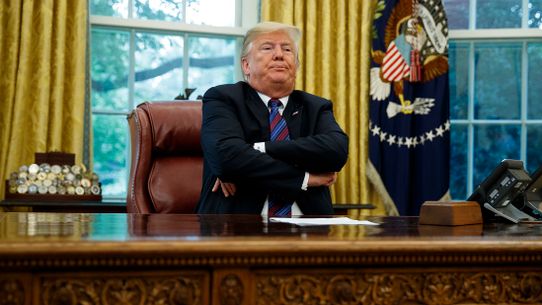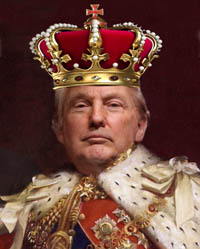
I take this time after Pres. Trumps speech yesterday (4 July 2019) to point out some things we all can learn from his presidency. I include not just Liberals and/or conservatives but all political persuasions. I also included those of us who study politics, either amateur or professional, practical or scholastic.
Just over 50 years ago, in my senior year in high school I started studying politics seriously. In four more years I got my B.A. in Political Science and had lived thru one of the greatest political events in history. It was at this time I first heard someone say that what we needed to do was elect a “Businessman” to be President. Someone who had demonstrated their abilities to get things done. Well we have elected a “Businessman”, so what can we say we’ve learned in the past two and a half years?
First off we can say for sure that most ‘Businessmen’ have no clue how to work in our political system. Be they Chairman of the Board of a mega corp or the president of a family owned mega business (as is Donald Trump) they only know how to give orders. They have no idea just how to make compromises. To not get everything they want from a deal. An when they try they usually do a very bad job of it.
Hypothesis One
One of the principal reason Mega Businessmen are so bad at working out political compromises is how responsibility and accountability work at the upper levels of management in Big Business. It is axiomatic in big business that “Credit flows up while shit flows down.” By this I mean that when something works well the credit for both the idea and it’s successful implementation will go to the highest manager who want’s it. While if something doesn’t work out the blame for the failure will go to the lowest working possible. I learned this early on in my career: “Mahogany Row is “NEVER” wrong.”
Is it any wonder that a person who has spent most of his/her working life in an environment of the person above you is always right and you never ask, but always command will not be skilled at bargaining? Also, given Hypothesis One, when ever an order is given it is given in such a way as to be always deniable if things go wrong but credit can always be claimed when they go right? If this is true we should be able to find evidence in how things are run in the current Administration. Look how many ‘acting’ key positions we have. Look at how they word orders. Indeed, just look how President Trump talks with his mediate staff. (That is when we can find out what was actually said.)
Hypothesis Two
Everything is a transactional deal. That is everything is Zero-Sum with a winner and a looser. Nothing is ever both sides win or both sides loose.
We are now going to get into something really heady here, Game Theory. It is one of the more advanced forms of mathematics loved by Political Science. If you want a fun way to understand just what Zero-Sum game theory is all about I recommend watching the old movie WarGames. I’m not sure when the great business schools of the west started teaching, or at least accepting, the idea that all business transactions are zero-sum transactions with only winners and looser. Any one who studies game theory knows that there are many games that are zero-sum that no-one can win. Just try Tic-Tac-Toe, if both sides make no mistakes no one can win. Their are also games where all players can win.
We now have businessmen leading us who have been brought up in the world of “If I don’t win, I’ve Lost” trying to make deals with others who know they think that way. So where is a question, why should they make a deal with us if they “know” they are going to loose?
Hypothesis Three
Everything can be ‘monetized’. Or what is the Danegeld? What is meant by this is everything has it’s price and if you are rich enough and/or famous enough you can do anything you want.
In the business world this is mostly true, because in the business world everything is mostly civil law. The problem is that you get into the habit of thinking everything has a price. That money will always solve the problem when things go south. In politics, not so much. In international politics even more so.
In business, if you are a corporation, if you do something that gets lots and lots of people ill or dead, you just dissolve the company, pay a relatively small penalty form company assets and go on your way. You are protected by the corporate vail if nothing else. If someone wants to hold an individual responsible for what happened you have to jump thru whoops to show the individual knew a lot of things before they can prosecuted. More often than not they can show they never ‘Meant’ it that way. They were ‘Misunderstood’ or the underling was ‘over zealous’ in there actions.
This what one of my old professors like to call the “Henry the 2nd” defense. Those Knight of his misunderstood him when he cried “Will no one ride me of this mettlesome priest?” And went off and killed the Archbishop Becket. (I’ve often wondered if the Pope would have be so upset if Becket had just been a parish priest?). Unfortunately for Henry the Pope didn’t buy it. The question now is will the electorate.
So what can we learn? Maybe not to elect an amateur to high office and most assuredly don’t elect a Mega Businessman. Or maybe not.
